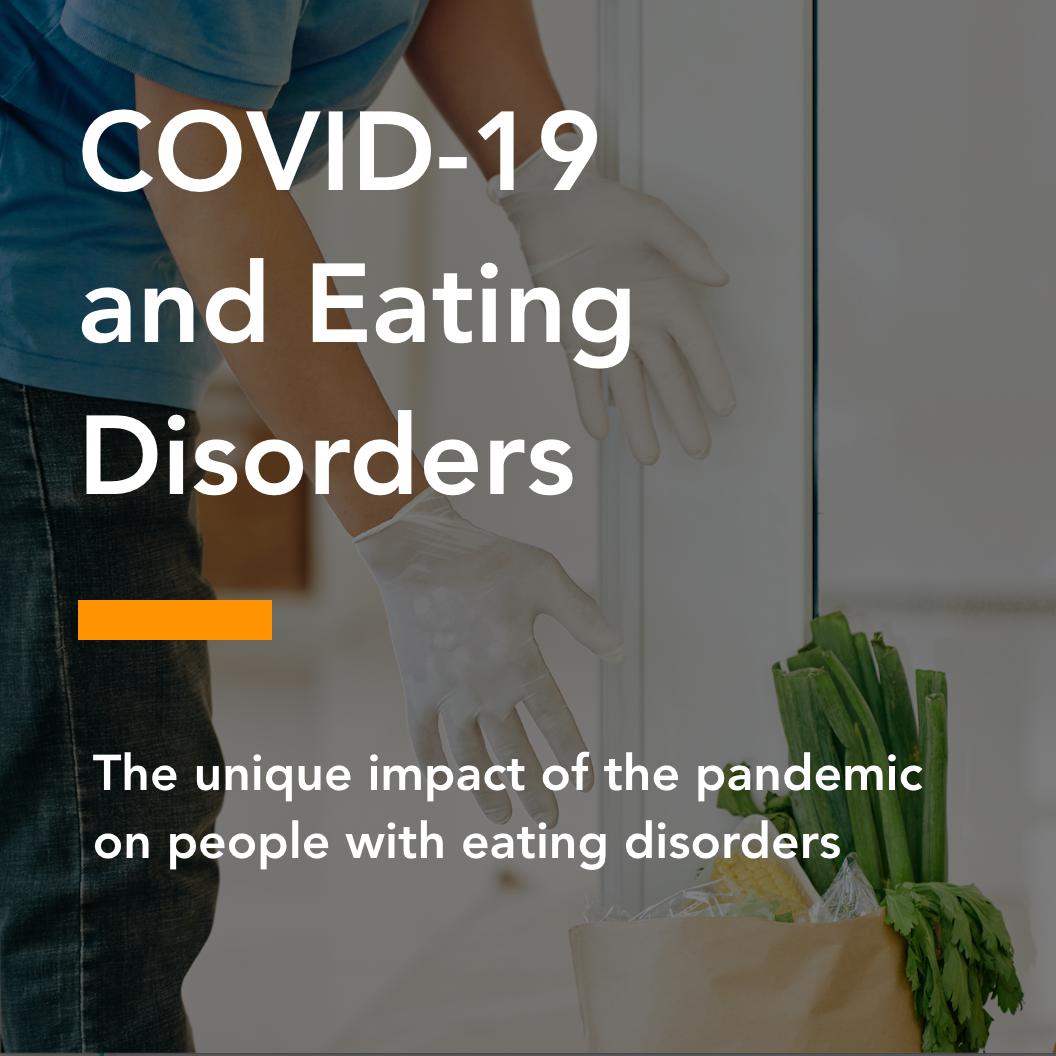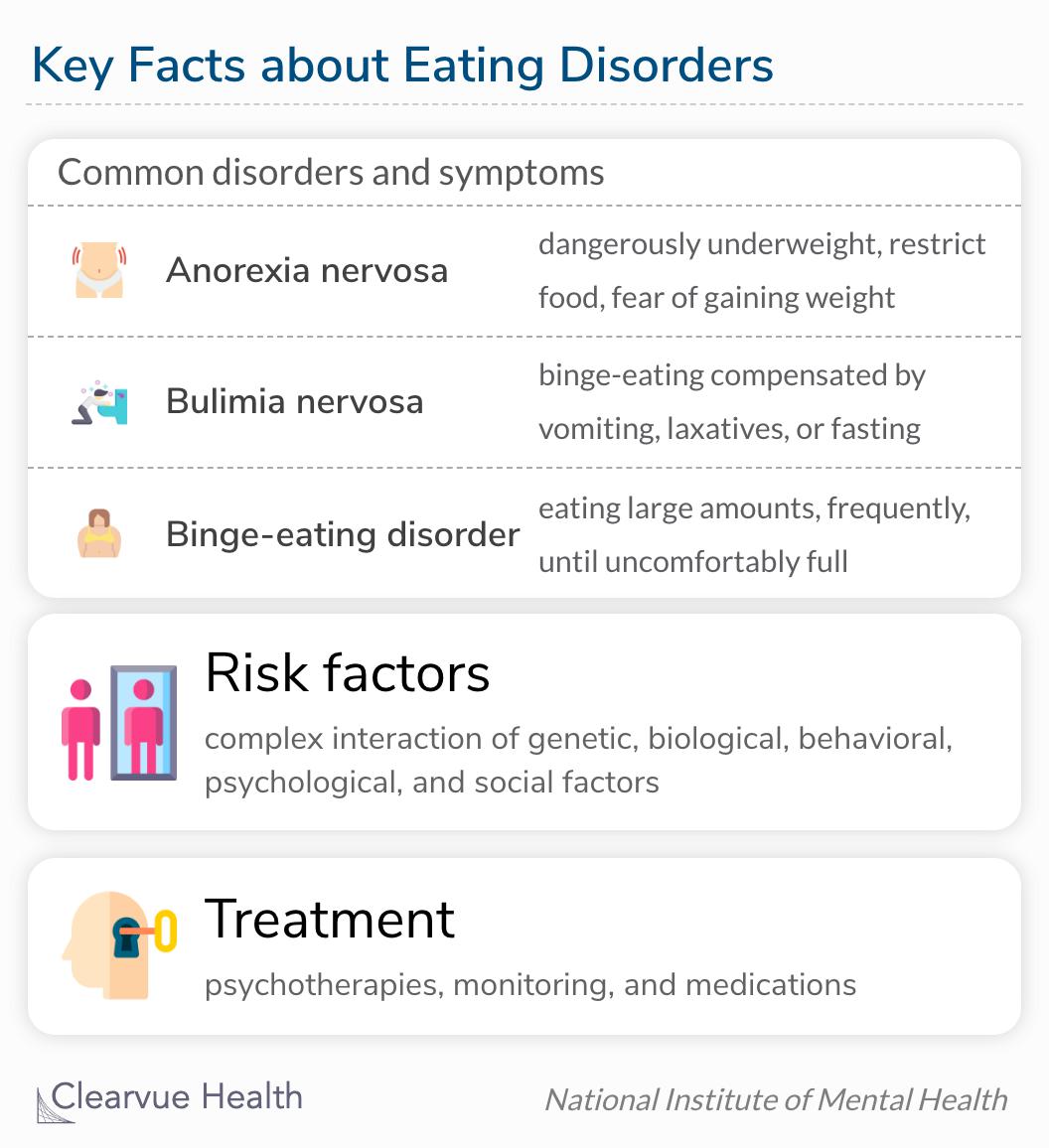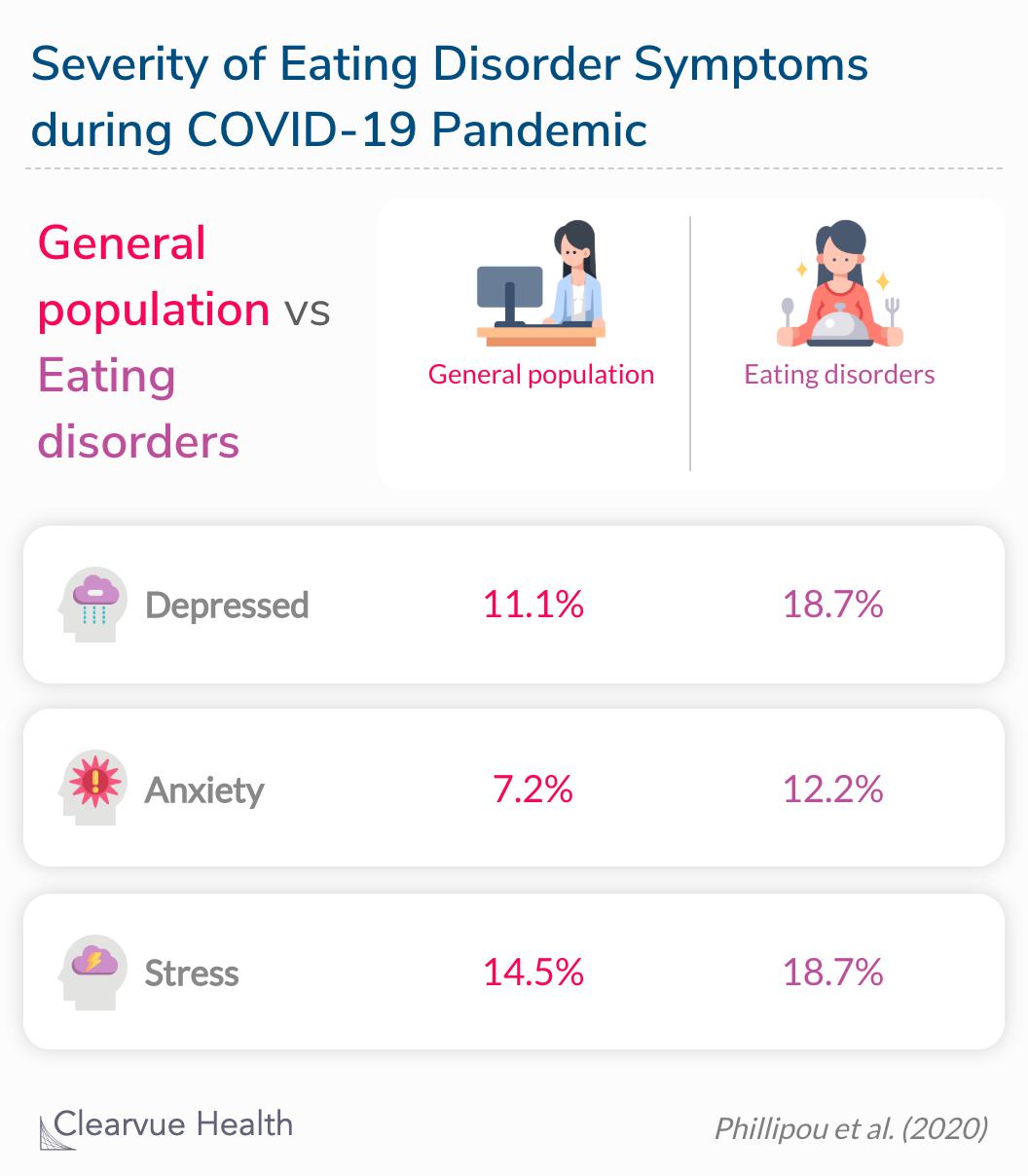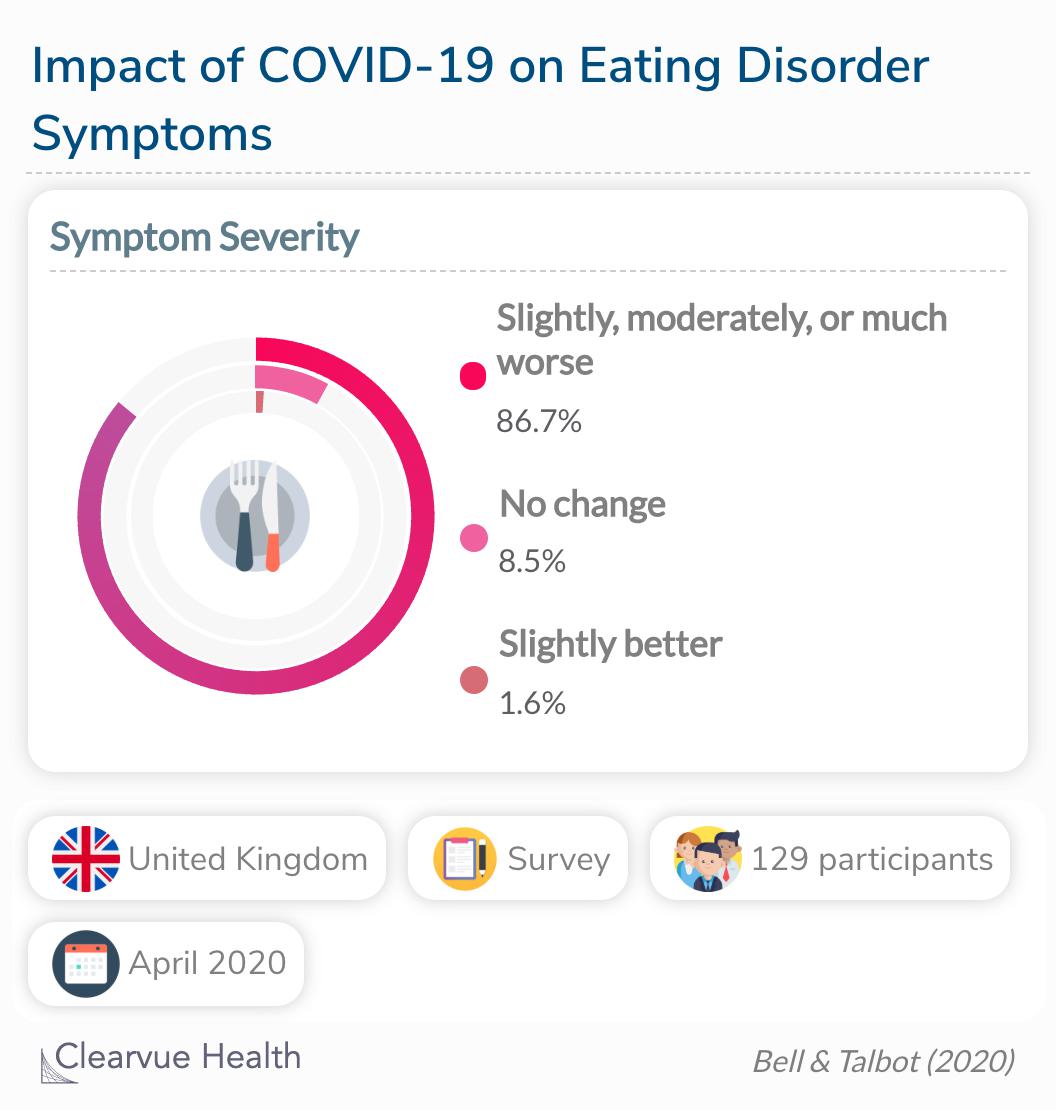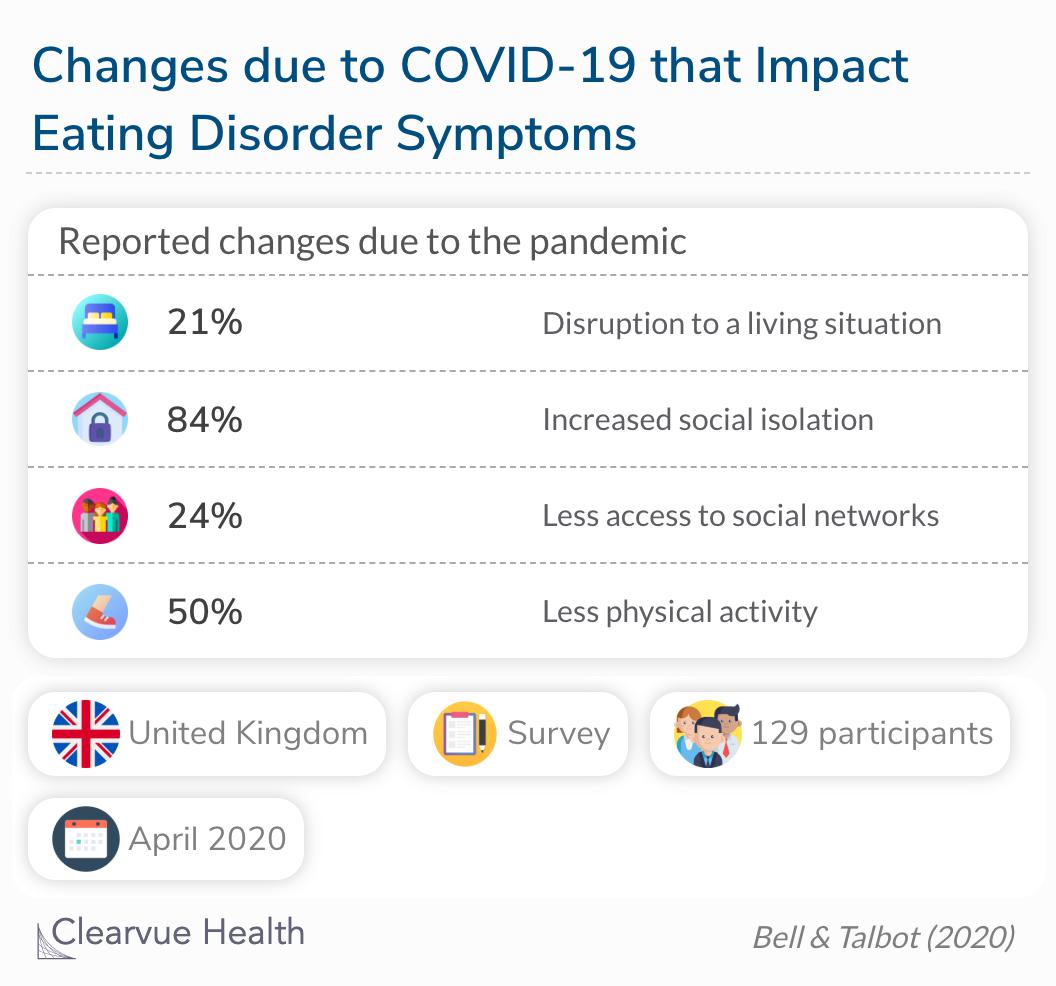COVID-19 and eating disorders: The unique impact of the pandemic on people with eating disorders
The United States is dealing with grief due to the COVID-19 pandemic that is relentless and profound. Mental health experts have detailed how the pandemic is hurting the mental well-being of the general population through fear, isolation, and uncertainty. These mental health consequences are accelerated in populations with existing mental disorders. Specifically, the pandemic has uniquely impacted the management of eating disorders.
Common eating disorders and symptoms, risk factors, and treatment overview
Increased feelings of depression, anxiety, and stress
To start, it is important to look at the general well-being of people with eating disorders. A study published in June 2020 estimated mental health changes in Australia during the early stages of the COVID‐19 pandemic. They compared levels of depression, anxiety, and stress between the general population and those with eating disorders.
The majority of respondents with eating disorders showed moderate to extremely severe levels of depression, anxiety, and stress compared to the general population.
Source: Eating and exercise behaviors in eating disorders and the general population during the COVID‐19 pandemic in Australia: Initial results from the COLLATE project
The majority of respondents with eating disorders were categorized as having moderate to extremely severe levels of depression, anxiety, and stress compared to the general population. This is an early indicator that people with an existing eating disorder were already reporting changes in their mental state due to the pandemic that could translate into changes in eating disorder symptoms.
Eating disorder symptom severity
To look at the changes in eating disorder severity, a study out of the United Kingdom measured symptom severity among a sample of participants who had a current eating disorder or were in recovery for an eating disorder. Participants were recruited to complete an online survey in April, soon after nation-wide lockdowns began. The survey measured psychological stress and coping for those specifically with eating disorders.
After analysis, researchers found that over 86% of participants reported that their symptoms had worsened as a result of the pandemic, with over 30% reporting that their symptoms were much worse.
Source: Exploring the impact of the COVID-19 pandemic and UK lockdown on individuals with experience of eating disorders
The majority of participants reported that their symptoms had worsened as a result of the pandemic, with over 30% reporting that their symptoms were much worse. Depending on the specific disorder, symptoms could range from binge eating a stock full of groceries to being too stressed out to eat at all. Eating disorders symptoms are likely worsened by negative media exposure, routine disruption, social isolation, changes to physical activity and sleep, and fear of infection.
After analysis, researchers found that over 86% of participants reported that their symptoms had worsened as a result of the pandemic, with over 30% reporting that their symptoms were much worse.
The researchers also asked participants about the changes to their lives due to the pandemic. The majority of participants reported increased isolation and reduced physical activity, which is to be expected. Participants also cited a disruption in their living situation and a reduced perception of control. Some reported that their relationship with food changed altogether.
Final thoughts
These studies show that people with eating disorders are suffering from extreme mental distress and worsening disorder symptoms. The resources used to treat eating disorders are directly impacted by the pandemic, such as access to inpatient facilities, support groups, and monitoring. The Journal of Eating Disorders summarized some of their concerns.
“
People with an eating disorder have a complex problematic relationship with food which will be enhanced at this time of food insecurity and panic buying... At a time of food insecurity with bare supermarket shelves, brands may not be available resulting in less choice and increased risk of precipitous weight loss.
Journal of Eating Disorders
